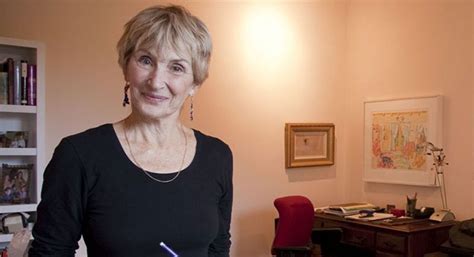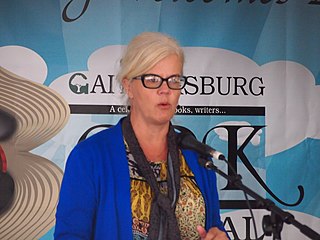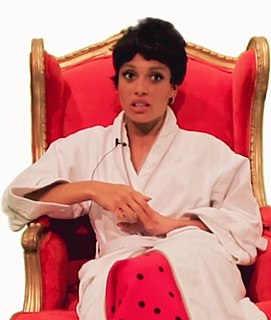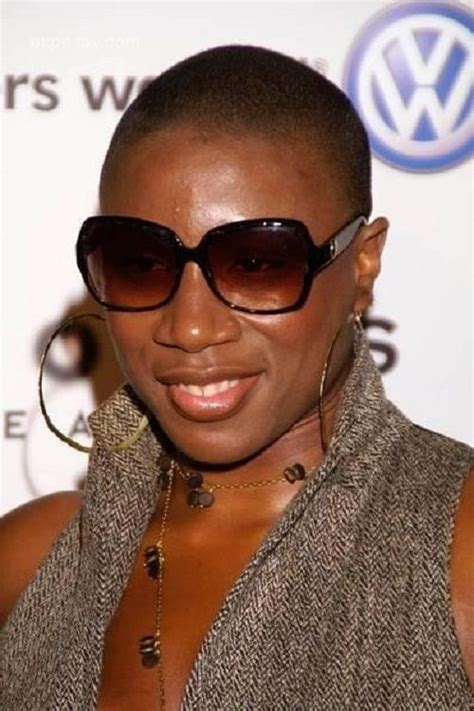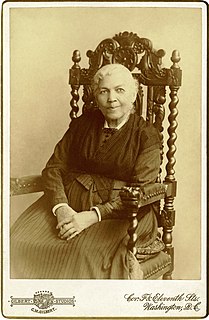A Quote by Sophy Burnham
Harriet Beecher Stowe was thirty-nine when she began Uncle Tom's Cabin. She had given birth to seven children and seen one die. She wrote her book to be serialized in an abolitionist newspaper. Much of it she composed on the kitchen table in between the cooking, mending, tending to her house.
Related Quotes
However, the daily life of the slaves in the South, as observed by many travelers, was obscured for all time by the relentless promotion of a single book, Harriet Beecher Stowe's "Uncle Tom's Cabin." Even today, any black who dares to say that perhaps we are not as badly off as our brethren in the jungles of Africa is hooted down as an "Uncle Tom." [...] It was no accident that Harriet Beecher Stowe's book became the greatest best seller of its time - it was tirelessly promoted throughout the entire nation, in the most successful book promotion campaign in our history.
She didn't feel thirty. But then again again, what was being thirty supposed to feel like? When she was younger, thirty seemed so far away, she thought that a woman of that age would be so wise and knowledgeable, so settled in her life with a husband and children and a career. She had none of those things. She still felt as clueless as she had felt when she was twenty, only with a few more gray hairs and crow's feet around her eyes.
Our house was littered with books- in the kitchen, under the beds, stuck between the couch pillows--far too many for her the ever finish. I suppose I thought if my grandmother kept up her interests, she wouldn't die; she'd have to stay around to finish the books she was so fond of. "I've got to get to the bottom of this one," she'd say, as if a book were no different from a pond or a lake. I thought she'd go on reading forever but it didn't work out that way.
One of my aunties inspires me beause of how easily she shows her emotions, and she isn't ever afraid to cry. My mum, for her work ethic - she might not show her emotions in public very much, but she's a total power woman. My grandma, who watched four of her children die before her, she's a powerhouse.
She came into a room; she stood, as he had often seen her, in a doorway with lots of people round her. But it was Clarissa one remembered. Not that she was striking; not beautiful at all; there was nothing picturesque about her; she never said anything specially clever; there she was however; there she was.
No, books. She would have maybe twenty going at a time, lying all over our house--on the kitchen table, by her bed, the bathroom, our car, her bags, a little stack at the edge of each stair. And she'd use anything she could find for a bookmark. My missing sock, an apple core, her reading glasses, another book, a fork.
She had been so wicked that in all her life she had done only one good deed-given an onion to a beggar. So she went to hell. As she lay in torment she saw the onion, lowered down from heaven by an angel. She caught hold of it. He began to pull her up. The other damned saw what was happening and caught hold of it too. She was indignant and cried, "Let go-it's my onion," and as soon as she said, "my onion," the stalk broke and she fell back into the flames.
When we were arguing on my twenty-fourth birthday, she left the kitchen, came back with a pistol, and fired it at me five times from right across the table. But she missed. It wasn't my life she was after. It was more. She wanted to eat my heart and be lost in the desert with what she'd done, she wanted to fall on her knees and give birth from it, she wanted to hurt me as only a child can be hurt by its mother.
Sophie has a gift," she said. "She has the Sight. She can see what others do not. In her old life she often wondered if she was mad. Now she knows that she is not mad but special. There, she was only a parlor maid, who would likely have lost her position once her looks had faded. Now she is a valued member of our household, a gifted girl with much to contribute.
